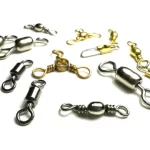Deep sea fishing, also referred to as offshore fishing, takes anglers to waters that are at least 30 feet deep. This exhilarating form of fishing offers the chance to reel in larger species such as tuna, swordfish, and even sharks – creatures not commonly found in shallow waters. Before embarking on a deep sea fishing adventure, it’s crucial to grasp essential practices and prepare appropriately for a successful and enjoyable trip. From understanding depth contours to ensuring safety, these tips can make the difference between a fruitful catch and disappointment.
What to Wear, Bring, and Leave Behind
When venturing onto open water or engaging in specialized activities like deep sea fishing, dressing suitably for the anticipated conditions is paramount. Expect to get wet, dirty, and possibly cold. Equip yourself with gear that withstands the elements while ensuring safety and comfort. Consider wearing a swimsuit and dressing in layers, carrying extra clothing that can handle moisture. Don sunglasses, a hat, and sunblock for protection. Closed-toed footwear is a must for safety. Leave valuables, including jewelry, on shore, and safeguard essential items in waterproof cases and bags. A wet bag is particularly handy for preserving wallets and keys. Depending on regulations, safety equipment and life jackets may be obligatory, especially in colder weather.
Master the Right Bait
The choice of bait in deep sea fishing diverges from that in other fishing scenarios, dictated by the target species. Shrimp, minnows, and mackerels replace traditional worms or nightcrawlers. Bait can be either live or artificial. To attract predators like sharks, anglers might utilize chum – a blend of fish parts, blood, and bones. Adhering to local regulations and restrictions on bait and chum usage is vital.
Grasp Fishing Fundamentals
While deep sea fishing offers an exciting experience, having a basic grasp of fishing techniques enhances enjoyment. Proficiency in casting lines and setting reels, acquired from other forms of fishing, translates well into deep sea fishing. Before embarking on sportfishing excursions, consider tutorials, videos, or expert consultations to refine your skills.
Seek Expert Company
No matter how many shows or articles you’ve absorbed on deep sea fishing, there’s likely some information you’ve missed. For novices, having an experienced fishing companion can prove invaluable. This activity demands mastering multiple skills, and seasoned anglers can impart tips and techniques you might never have encountered. Moreover, it instills a sense of safety. Remember to choose a saltwater fishing boat if navigating salt water. As you discover new skills, have fun, create memories, and ensure your safety, a fishing expert’s guidance can make your deep sea fishing experience truly rewarding.
Image/Source: HMYYachts





